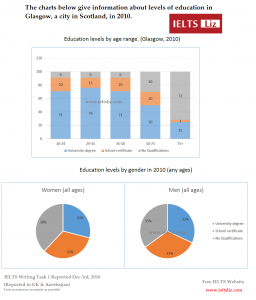“Shoes” is a commonly recycled topic in IELTS Speaking Part 1. Most people think only about the topic of Clothes, but the topic could be very focused on just Shoes. Below are some typical questions for this topic and model answers. You can also find great vocabulary to boost your score for this topic here: SHOES VOCAB LIST
IELTS Speaking Topic SHOES: Questions
- What kind of shoes do you usually wear?
- Do you have a favourite pair of shoes?
- How often do you buy shoes?
- Where do you usually buy your shoes?
- What do you look for in a pair of shoes?
- Would you ever spend a lot of money on a pair of shoes?
- Do you think men and women have the same attitude towards shoes?
- Are there any shoes in your country that shouldn’t be worn at work?
- Do people usually wear different types of shoes in different seasons in your country?
- Would you ever buy shoes online?
- Do you think the type of shoes someone wears reflects their character?
For IELTS Speaking Part 1, the examiner will only ask you about three or four questions per topic. So, even though the examiner has a long list of questions, you’ll only be asked a few of them.
IELTS Speaking Model Answers for SHOES Topic
- What kind of shoes do you normally wear?
- Well, most days I like to wear comfy shoes that are easy to wear for the whole day, like sneakers or some other kind of flat shoes. I definitely wouldn’t choose to wear heels normally.
- What’s your favourite pair of shoes?
- I love my Red high heeled shoes that match my red evening dress. But even thought they are my favourite, I rarely get a chance to wear them because they aren’t suitable for everyday events, just for fancy evenings.
- How often do you buy new shoes?
- Probably not as often as I should. I guess I get a new pair about once every couple of years. I tend to stick to my favourites until they completely wear out.
- Do you think fashion is important to consider when buying shoes?
- Yes and no. I mean, in some ways yes I think you do need to consider whether your shoes match the clothes you already have and if they are relatively modern. But at the same time, if I was just buying a pair of trainers I wouldn’t bother with fashion and I’d just go with comfort instead.
- Do you think men and women have the same attitude towards shoes?
- Well, this is probably a gross overgeneralisation but I suppose that on the whole women are more conscious of shoes than men and tend to pay out more for their shoes. Certainly, that’s the case with most men and women I know. But I’m sure there are plenty of men and women out there to counter that.
- Would you buy shoes online?
- As long as there’s an easy return policy, I don’t see buying shoes online a problem. In fact, it’s often easier to just order five pairs online and then you have time to think about whether you want to keep them before the deadline for the returns.
- Do you think the type of shoes someone wears reflects their character?
- Yes, I do. People say that first impressions are important and I think that goes for shoes too. If you see a person wearing a worn out pair of shoes, it gives you the impression that they that are sloppy. On the other hand, if you see someone wearing brand name shoes that cost a fortune, you know that the person has plenty of money to splash around and doesn’t care about costs. So, shoes can tell you a lot about someone’s character.
Vocabulary Review
- comfy = short form of comfortable (short forms are suitable for IELTS Speaking which is informal)
- gross overgeneralisation = to assume something without really thinking deeply, for example all women do X and all men do Y
- worn out = tatty, shabby, the worse for wear, tired
- sloppy = not tidy, lazy, slovenly
- cost a fortune = very expensive (cost a fortune is a much better idiom to use than cost an arm and a leg).
- have money to splash around = have money to waste, to throw around
RECOMMENDED FOR YOU
Click to open link below:
- SHOES Topic Vocabulary
- Vocabulary for Clothes
- Free Speaking Part 1 Video: Common Topics
- Tips: How long should your answer be?
- All MODEL ANSWERS, TOPICS AND TIPS FOR IELTS SPEAKING
.







